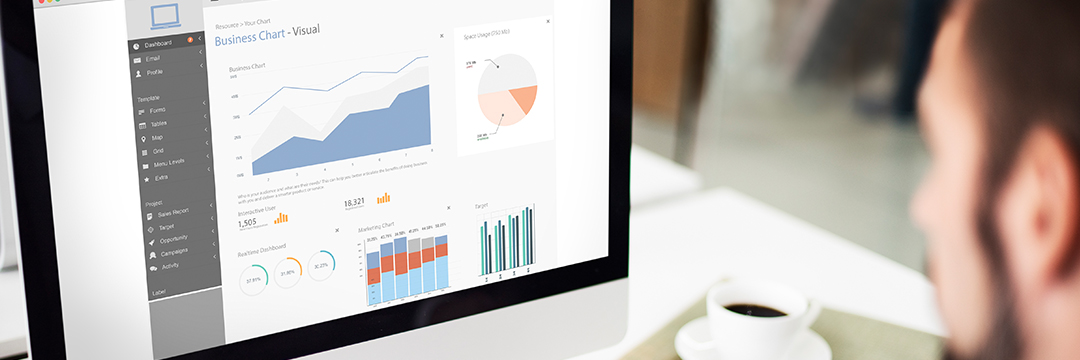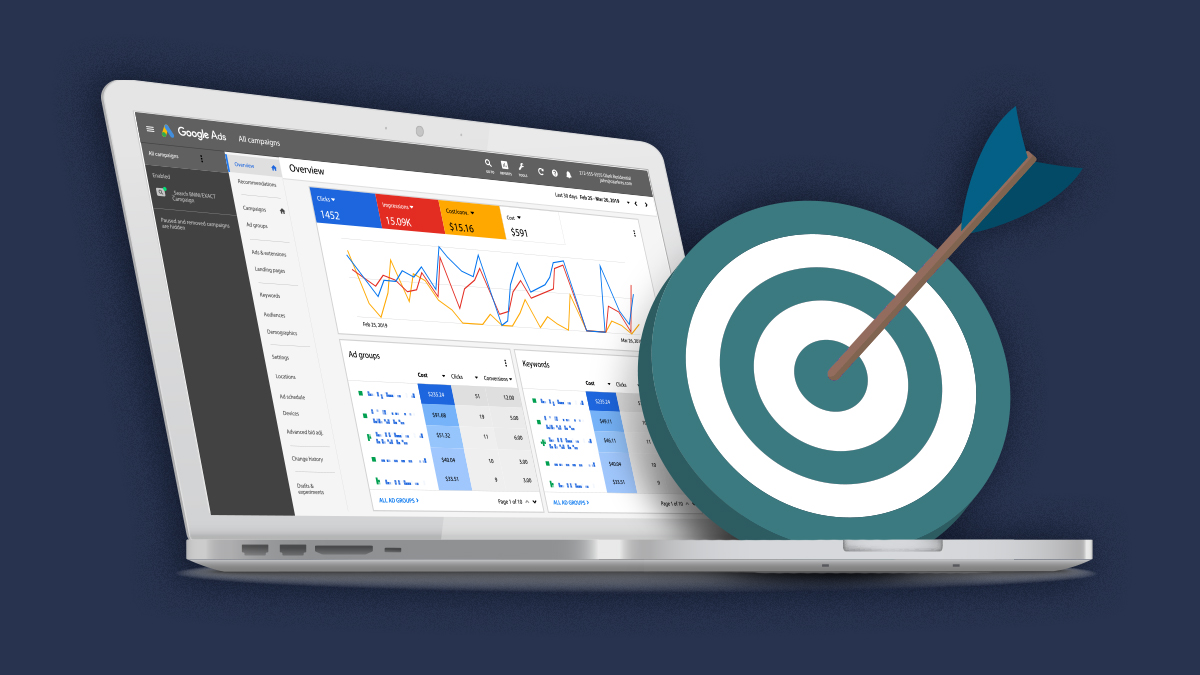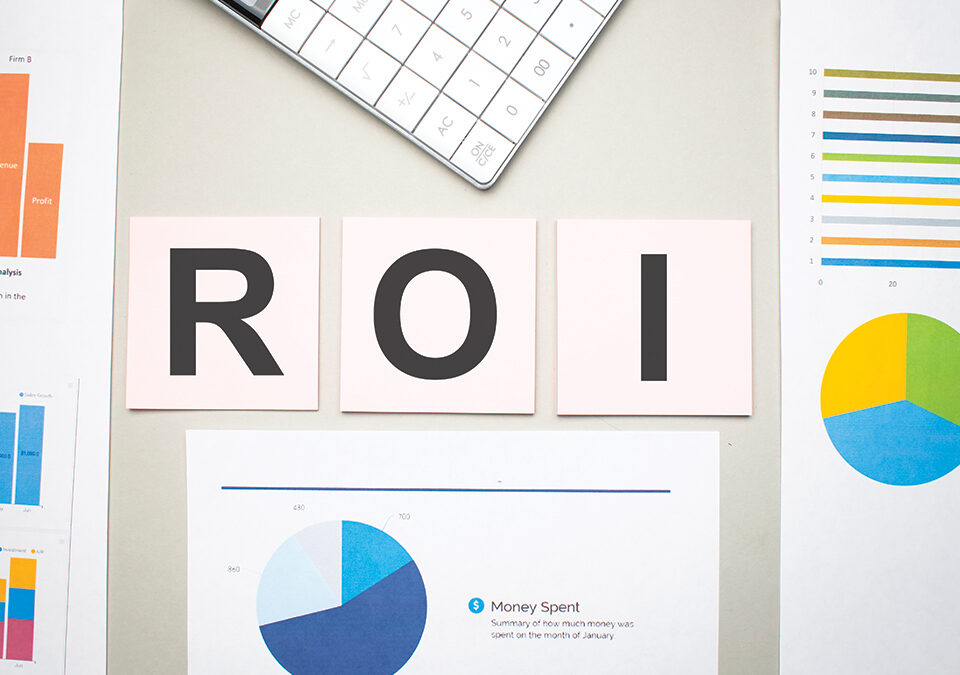
The importance of your customer’s experience
June 28, 2022
Increase conversions with data-driven marketing
August 23, 2022If your business isn’t utilizing pay-per-click advertising yet
It might be time to reconsider how you acquire customers
Essentially, PPC advertising is like buying traffic to your website. This is recorded as search traffic and can be tracked, and measured for maximum efficiency. Another way websites generate traffic is through organic search, which mostly comes from users, who visit your site organically. Of course, other channels such as social media, and email marketing sends users to your site. However, pay-per-click advertising amplifies the amount of traffic your website receives.
Pay-per-click advertising is a way for you to pay for ads on search engines. When someone searches for a word or phrase related to your business, your company's ad appears at the top of the results page. When a visitor clicks your ad and then visits your website, you'll pay the search engine company a fee for sending that visitor to your site. By creating relevant and targeted pay-per-click ads, you can lower your cost per click from Google by organising keywords into campaigns and ad groups and setting up PPC landing pages that optimise conversions.
Google Ads is a platform that allows businesses to create ads that appear on Google's search engine. When someone searches for something, Google selects ads based on the quality of your keywords and ad campaigns. Using Google Ads has proven to be an effective way to run PPC marketing, so besides being the most popular search engine, Google ads attract a tremendous amount of traffic and bring the most click traffic to your ads.

You can lower your cost per click from Google by organising keywords into campaigns and ad groups.
5 benefits of PPC ads
1 - Brand awareness boosts
Your brand will become widely recognisable by utilising PPC Ads. It is essential to have a strong brand presence to be on the first page. This is because people tend to look at the top page results when searching for solutions to their problems online. Generally speaking, a user needs to interact with a brand at least three times, before moving down into the conversion funnel, where they convert as a customer.
2 - You'll put yourself above your competition
As you optimise your campaigns, PPC advertising can gain steady traffic for your business, this can help put your brand above your competitors. However, it does take some time to set up, track, optimise, search for the right keywords and for visitors to convert.
3 - Targeted audience increase
Specifying keywords or phrases related to your business that are searched regularly will allow your brand to be discovered by a targeted audience who are already interested.
4 - Increased potential in the audience
There are many potential customers, and your business can be put in front of thousands of people using PPC advertising. Before people make a buying decision, they tend to first search online.
5 - PPC ads compete for costs
Ads are only paid for when visitors click them, making PPC advertising affordable but in some cases not as PPC advertising competes with other ads. Moreover, unlike other marketing strategies, you can monitor your return on investment.
10 methods of how to generate quality leads
Here, we have provided 10 strategies that you can use to generate quality leads. However, we realize that not all business owners have the time, or skills to actively manage PPC campaigns. That’s where we come in. Our team has years of experience and a track record to prove it.
1 - Ensure tracking is set up right
To set up tracking parameters in Google Ads, go to the "Campaign URL options" under the advanced settings in your campaign settings. Add your {lpurl} tag, which will automatically be replaced with your landing page URL for every ad you run. This will help you measure how efficiently your campaigns perform and track each visitor's source, keywords, and device.
2 – Determine the sources of opportunities
This includes your tracking parameters on all your landing pages and we keep them in a contacts database along with other contact information. Syncing these data with a CRM platform will help you view all the lead data for opportunities in one place. We can then see which campaign generated an opportunity, what device was used to visit your site, and what type of opportunity it is.

not all business owners have the time, or skills to actively manage PPC campaigns.
3 - Organise your campaigns into groups
You must divide your campaigns into smaller groups by targeting each main feature, benefit, subcategory, target industry, or location relevant to your product or service. Once these segments are identified, you can set up your campaigns with the necessary keywords, ad copy, and landing pages relevant to that specific campaign group. As a result, you can increase conversion rates with better-quality leads.
4 - Choose relevant keywords for your campaign
As mentioned above, the best keywords for your ad campaigns are those that are relevant to your business and target audience. There are several paid platforms you can use for thorough keyword analysis. If you want to save some time and money, contact the Best Web Design team for a free consultation.
5 - Don't include irrelevant keywords
If you've followed the methods described in sections one and two (URL tracking and identifying opportunities), you can spot keywords that bring poor-quality leads. Add those negative keywords to a list to avoid receiving such traffic from online searches and replace them with strong relevant keywords to boost conversions.
6 - Prequalify visitors with ad copy
To target a particular audience, target businesses of a specific size. If you work with web designing for start-ups, your ad could read "Web Design for SMEs." Additionally, pricing your ad copy is a good way to build opportunities because you can avoid prospects who may not have the budget for your services.
7 - Adapt landing pages to your ad groups
When people click on your ads, you've already paid for their visit. To get the most from your ad campaigns, create landing pages that offer what your customers want and need. A/B tests different landing page versions to see which produces the best results.
8 - Receive keyword inspiration from competitors
Try using similar keywords and CTA's without blatantly copying them if your competitors are getting prime real estate on search engine results. While you can learn from your competitors' strategies, make sure not to use their branded keywords in your ads.
9 - Adapt to mobile performance
Suppose you've followed tips one and two. In that case, you'll be able to tell which devices (computer, tablet, or smartphone) drive opportunities. On the contrary, if opportunities aren't being converted by mobile leads, you can stop running your campaigns on those devices. Moreover, you can also downsize bids so that computers and tablets receive most of your traffic.
10 - Plan your ad schedules
An ad schedule should be set up for your ad campaigns. For this reason, you'll be able to track performances daily and determine which days or hours produce the most opportunities by combining data and ad schedules. When running ad campaigns, and you're not doing well with generating leads on certain days like the weekends, stop running them and try moving them to during business hours.
Managing PPC campaigns
To produce long-term results, monitor your campaigns regularly and adjust as needed. Split ad groups into smaller ones, add keywords and remove negative terms that lead to incompetence, reduce unnecessary spending, review costly, less productive keywords, remove them, and adjust landing page content and CTAs to boost conversion rates and avoid sending traffic to one page.
Best Web Design can help you set up a Google Ads campaign and track its performance, making changes to your Ad Groups and landing pages based on Analytics data.
We have the following pay-per-click packages available:
- Campaign set up
- Single ad group
- Double ad group
- Triple ad group
Each monthly management package includes having your keywords implemented, and landing pages get monitored and adapted every month. Your traffic gets tracked and reported to you.

Best Web Design can help you set up a Google Ads campaign and track its performance, making changes to your Ad Groups and landing pages based on Analytics data.
9 ways to improve PPC campaigns
1 - Boost quality scores
Quality Score measures your ads, keywords, and landing page quality. Higher quality ads can result in lower costs and higher conversions. You'll see higher quality scores depending on the relevance of your ads and landing pages to users. Make your Ad groups relevant; use clearly written ad copy and persuasive CTAs to increase your quality scores.
2 - Find and bid on keyword phrases
The benefits of long-tailed keywords are less competitive, and the conversion rate is usually higher. Combining keyword phrases can lead to an increase in the relevance of your PPC ads.
3 - Use negative keywords efficiently
Avoid your ads from using negative keyword terms that aren't relevant to your PPC ads which prevent them from being triggered.
4 - Test other ad positions
The cost per click is calculated based on the AdRank of competitors in the position below on a SERP. An effective way to reduce your CPC is by testing different ad positions and measuring their impact on clicks and conversions.
5 - Ad Scheduling
Ad scheduling allows you to choose the best times to show your ads. You can use these insights to create a custom ad schedule that helps you drive more conversions from your budget and maintain or improve your average cost-per-click.
6 - Location Targeting
You can change bids based on the locations of your searchers. If an area has a lower conversion rate, you can adjust your strategy to maximise visibility in that area.
7 - Use various keyword match types
You might have heard about different kinds of keyword match types. An exact match, for example, is highly targeted and expensive, whereas a broad match is more open and less expensive. Combining exact and broad match keywords with negative keywords can help you balance your bids and reduce your CPC.
8 - Device adjustments
Pay attention to how your audience interacts with your ads and landing pages and what devices they use. You may find that mobile users are just browsing, while desktop users convert at higher rates. If so, you can change your bid strategies to target more desktop users and lower mobile device bids.
9 - Take on rising brand terms
When you have competitors bidding on the same keywords as you, it can be frustrating. You can try to outbid them or compete by creating an exceptional landing page experience and focussing on your ad extensions.
At Best Web Design, we can help you optimise your PPC advertising experience and set up, manage, and report on every PPC performance. Let us help you generate those leads you've been waiting for.






